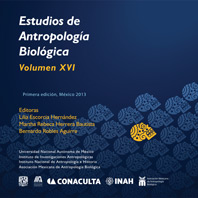A first approach to generating an inmunogenetic map of the Mexican population
DOI:
https://doi.org/10.22201/iia.14055066p.2013.56706Keywords:
immunogenetics, hla, miscegenation, haplotypes, Mexican population geneticsAbstract
Given the biological demographic and epidemiological relevance, Human Leukocyte Antigen (hla) system, information was collected on haplotype frequency of Mexico populations that differ in their history, ecology and demography, to display a picture from immunogenetics wich in the future will not only explain the prevalence of infectious and autoimmune diseases, and its relationship with different epidemics, but explore the mixing and the contribution of its ancestral components to the gene pool observed in current populations of Mexico. We describe the biological variability in the hla system in different mixed populations country and correlate the information produced with the data on the demographic social and biological history of studied populations. The differential presence of haplotypes has a geographical distribution pattern and correlates mainly with colonial history, with European haplotype prevalence in northwestern and western regions, Native American associations in central and southeastern areas, and important African genetic contribution in coastal areas of Veracruz. We found a high proportion of haplotypes not previously reported in any population. The presence of various haplotypes with components of different ancestries could involve biological mixing hla at system level.
Downloads
Downloads
Published
How to Cite
Issue
Section
License

http://creativecommons.org/licenses/by-nc-nd/4.0/


